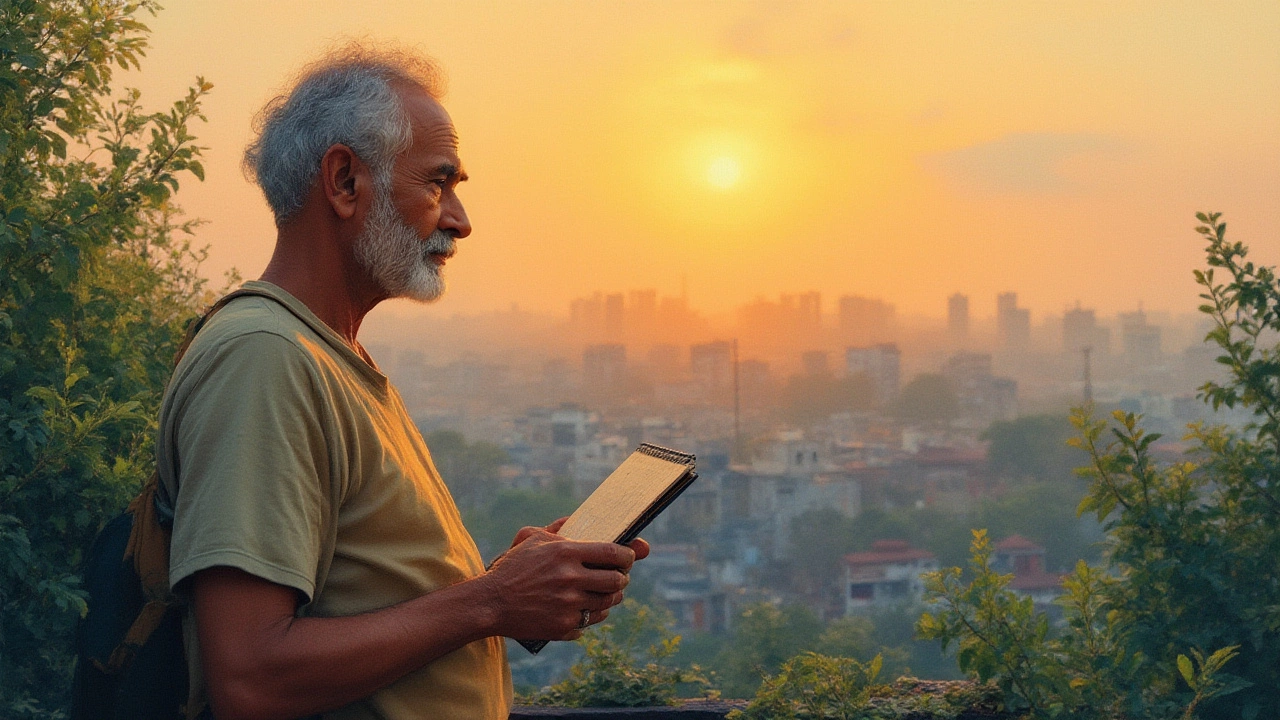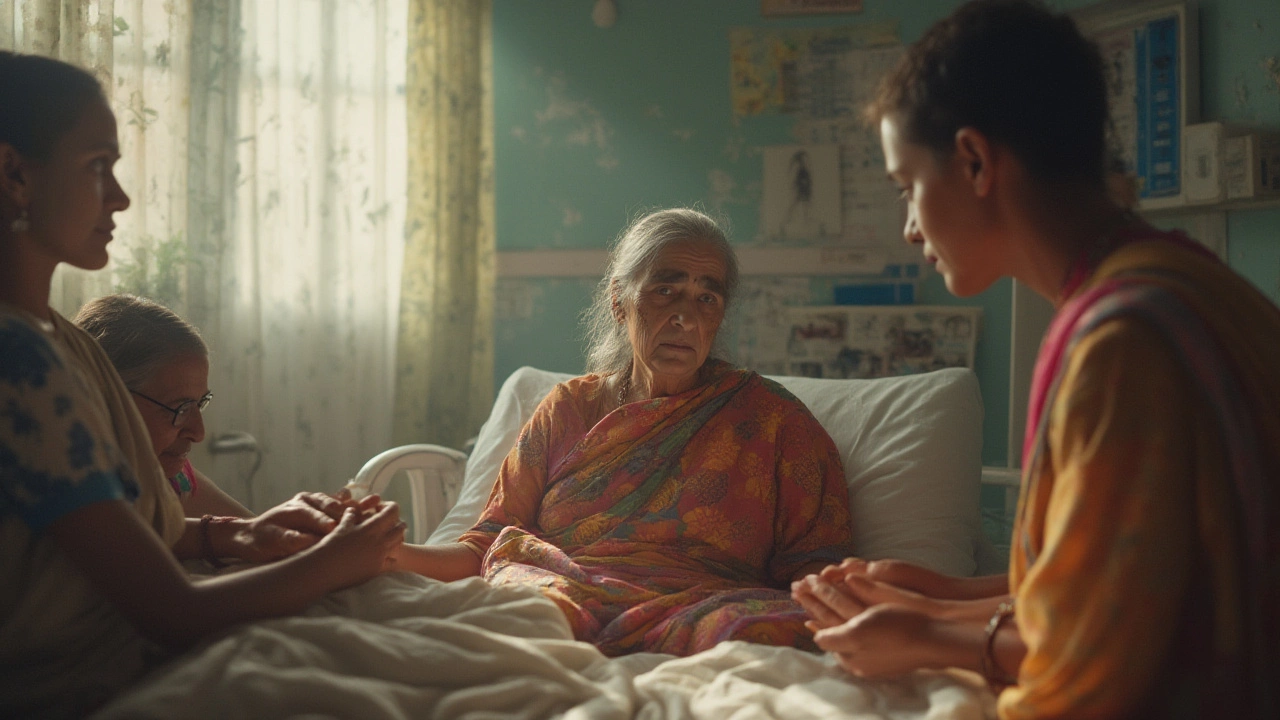Imagine sitting across from your doctor, hearing the word “cancer.” The next thing many people hear is “chemotherapy”—a word that’s heavy with fear and hope all at once. But what if chemo isn’t right for you, or what if you want to explore other options? The truth is, saying yes to chemo isn’t written in stone. There are reasons, sometimes hard ones, why people say no. And it’s a choice that isn’t as rare as you might think.
The Realities of Chemotherapy: What They Don’t Tell You
Chemo gets a reputation as the big hammer in the fight against cancer, and for good reason. It’s one of the most common treatments, and yes, it saves lives. But here’s a fact that often gets drowned out in fear: not every tumor melts away with chemo, and sometimes the side effects outshadow the benefits. The American Cancer Society lists more than 50 possible side effects for chemo, ranging from hair loss and fatigue to heart damage, nerve pain, and even risk of secondary cancers down the road. Some people can barely stay awake, others get mouth sores so bad they can’t eat, and for a few, it means months in and out of hospitals for infections.
Let’s bring in some numbers. According to a 2023 Australian study, nearly 25% of patients with advanced solid cancers (lung, pancreas, stomach, and others) choose not to start or continue chemo after their initial consult. Why? Some just want to avoid the exhaustion and pain, some can’t afford to be out of work for months, and others are simply focused on living the rest of their lives on their own terms. A Japanese registry study in the same year found that 46% of people over the age of 75 with metastatic cancer said no to chemo at the recommendation stage—and most said it was about wanting quality, not quantity, of life.
Don’t forget: not all cancers respond the same way. Certain blood cancers and childhood cancers have high cure rates with chemo, like childhood leukemia (with survival rates close to 90%). But then there are cancers where chemo hardly budges the needle, like advanced pancreatic cancer, where it extends life by a few months, often with heavy side effects. Most folks don’t know this up front, because the pressure to “fight” can drown out the sobering details.
Now, imagine for a second being told you’ve got stage IV cancer—spread to distant organs, not curable by surgery. For some, it’s not about chasing months but making the ones you have better. That’s when the question isn’t “Why chemo?” but “Why not chemo?” The answer can depend on so many pieces—your type of cancer, your health outside of cancer, your support system, and what matters most to you.
Reasons People Say No to Chemo: It’s Not Just About Age
Everyone pictures an older patient weighing the risks of chemo. But the truth is, younger folks pass up chemo, too. The decision comes down to personal values, medical facts, financial realities, and sometimes a fiercely independent streak. Here are some of the most common and specific reasons:
- Cancer Type & Stage: If the cancer is terminal and data shows chemo will only give a couple extra months, some will opt to skip it and avoid the harsh side effects.
- Pre-existing Health Issues: Heart disease, kidney failure, weak immune systems—these complicate things. Sometimes the risk of chemo outweighs any potential gain.
- Quality of Life: People want time with kids, to travel, to have energy for walking their dog—simple pleasures instead of doctor offices. For some, being sick from treatment feels worse than being sick from cancer.
- Failed Previous Chemo: If tumors didn’t shrink, or symptoms got worse, some decide to forgo more rounds.
- Religious or Philosophical Beliefs: Some traditions value natural healing, and a handful of patients find more comfort in that route even if it’s unconventional.
- Cost: Don’t underestimate it. Chemo regimens run into lakhs or cost tens of thousands of dollars in places like the U.S., and insurance doesn’t always cover everything.
- Desire for a Natural Death: Some simply don’t want to spend their last months hooked up to IV drips and tubes.
Each reason is deeply personal. Studies from the US National Cancer Institute regularly find that people who say no are often clear-headed and deliberate, not “giving up.” That old stereotype just doesn’t fit most people’s reality.
If you’re thinking about refusing chemo, one tip: ask for a detailed rundown of average benefits, not just the best-case scenarios. Get your doctor to be real with you—“Will I really feel better or live longer, or will this just make me sicker?” Sometimes, asking this question changes the conversation completely.

Navigating Your Options: What’s Out There Besides Chemo?
The world of cancer treatment is a lot bigger now than it was 20 years ago. Doctors aren’t stuck with just chemo or nothing—they’ve got newer targeted drugs, immune therapies, and advanced palliative care that can ease symptoms and sometimes shrink tumors with fewer side effects.
Take immunotherapy. It uses your body’s own immune system to attack cancer. Some types of lung cancer, melanoma, and kidney cancer have responded surprisingly well to these newer drugs, with fewer side effects than standard chemo. Targeted therapies, like tyrosine kinase inhibitors for certain leukemias or breast cancers, hit molecular “switches” in cancer cells and often skip over healthy cells. They aren’t side effect free, but many people tolerate them better than old-school chemo.
There’s also palliative care, sometimes misunderstood as “giving up.” Good palliative teams are all about maximizing comfort, function, and mood—managing pain, nausea, sleep problems—while you keep living your life. In 2020, a New England Journal of Medicine study found that people who started early palliative care alongside, or instead of, aggressive treatment lived longer and reported better quality of life than those who just kept hammering away with chemo.
And don’t forget clinical trials—they aren’t just for new chemo drugs. Several trials now offer older patients alternatives, like oral therapies, lower-dose regimens, or supportive care interventions. If your doctor hasn’t mentioned trials, ask. Many folks end up with options because they pushed for it.
Here’s an easy way to compare the pros and cons of chemo and other options:
| Treatment | Intended Benefit | Common Side Effects | Who Benefits Most |
|---|---|---|---|
| Chemotherapy | Shrink/slow cancer, extend life | Hair loss, nausea, fatigue, risk of infections | Curable, sensitive cancers |
| Immunotherapy | Immune system attacks cancer | Fatigue, skin rashes, inflammation | Several solid tumors (e.g. melanoma) |
| Targeted Therapy | Attacks cancer “switches” | Fewer; may include rashes or diarrhea | Cancers with mutations |
| Palliative Care | Quality, symptom relief | Minimal, improves comfort | Advanced cancers |
If you say no to chemo, it doesn’t mean you’re out of medical options. Sometimes it means you get a team focused on making every day better—not longer, just better.
Questions To Ask If You’re Considering Saying No to Chemo
This crossroads is stressful. Whether you’re the patient or the family, you want to get it right. The best way? Ask questions—real ones. Here are a handful I’ve seen people use with success:
- Is there data about how effective this chemo will be for my specific cancer type and stage? What's the average increased survival—days, months?
- What is the quality of life like during treatment, and after treatment?
- Are there non-chemo medications or trials suitable for my cancer?
- How will chemo affect my day-to-day activities like working, caring for kids, or traveling?
- If I refuse chemo, what are my best options for managing pain and symptoms?
- Can we include a palliative care doctor on my team, right now, not just later?
- What have other patients in my situation chosen, and how did it work out for them?
And here’s one that matters more than it seems: “What would you do if you were me?” Sometimes getting a doctor to switch shoes yields a surprisingly honest answer.
Remember, you have a right to pause, take your time, and even get a second (or third) opinion. No one should ever make you feel rushed into such a big decision. Take trusted people with you to appointments, write down your questions, and ask for printed info you can take home. Nobody has to navigate this moment alone.
There’s no one-size-fits-all answer to saying no to chemo. For some, it’s about seizing one more shot at remission. For others, it’s about squeezing the most joy and meaning out of time left. No call is wrong if it’s yours. This is your life; you get to steer it—even in the hardest moments.
